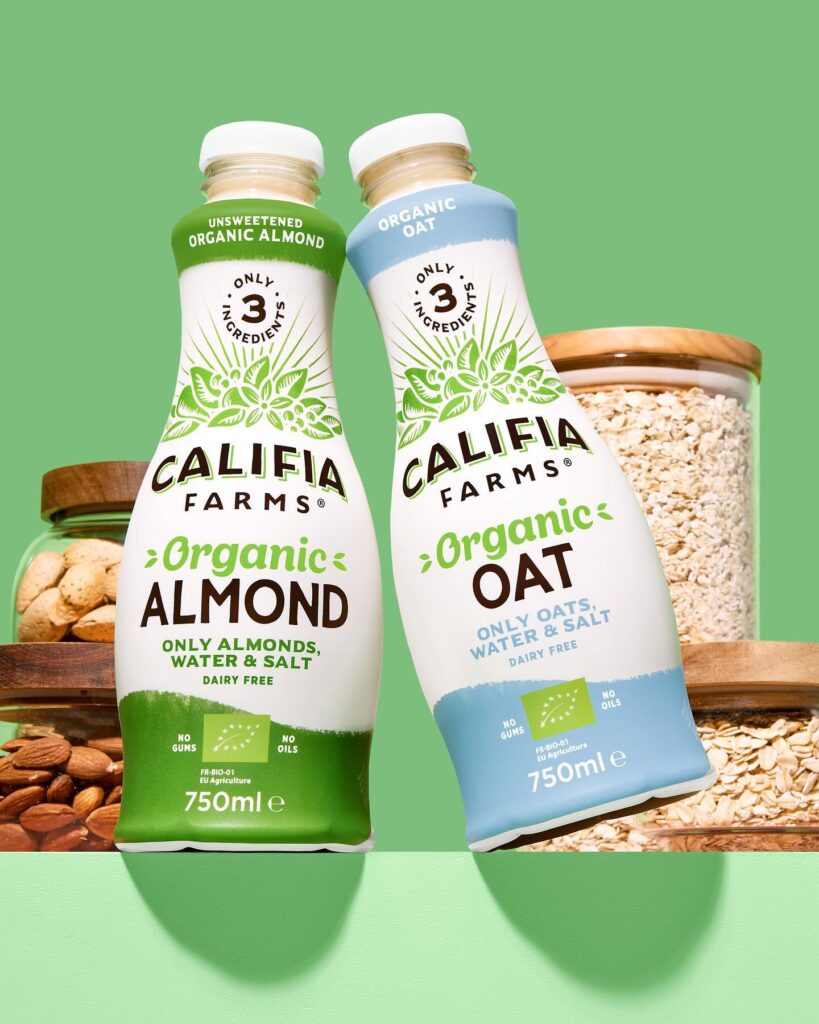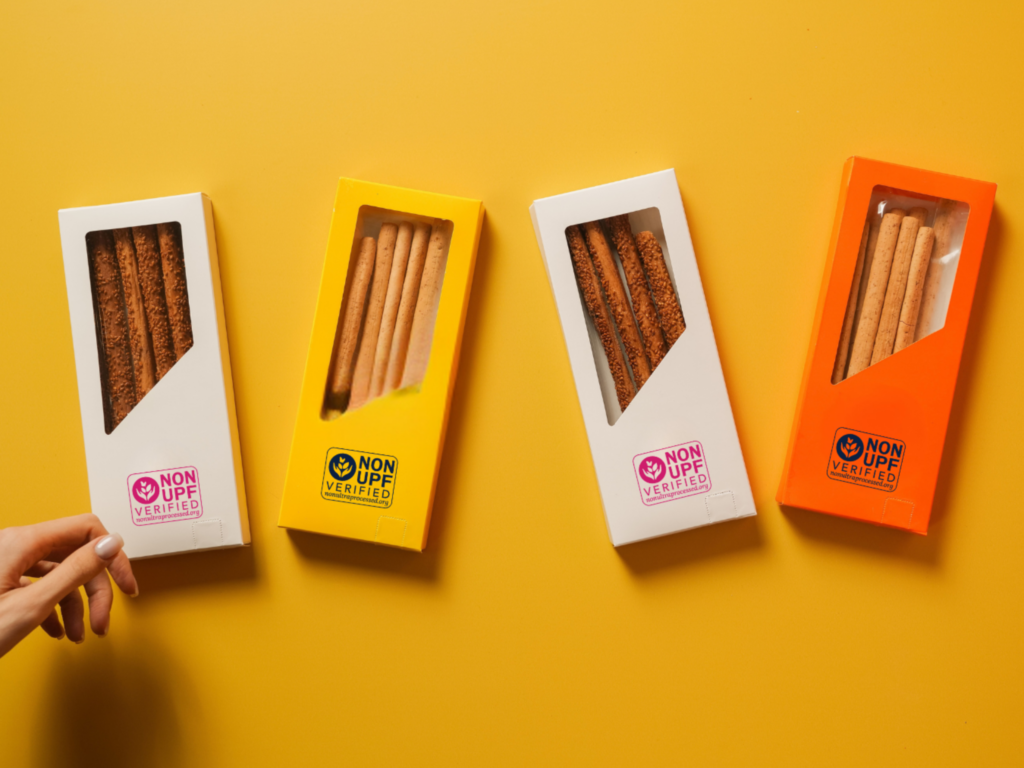
The Non-GMO Project has kicked off its pilot programme to develop a standard for non-UPF labels on food and drink products, with 16 brands participating.
Amy’s Kitchen, Califia Farms and Simple Mills are among 16 food and beverage firms participating in a pilot programme to set an industry-wide standard for the verification of non-ultra-processed foods (UPFs).
The effort is being spearheaded by the Non-GMO Project, the organisation behind the Non-GMO label. In January, it introduced a Non-UPF Verified label under the Food Integrity Collective, a group convening stakeholders from the natural products sector to “create systemic change in our food system”.
UPFs have sent the food industry spinning. Americans now get 55% of their calories from these products, defined as those made with industrial formulations and techniques or containing cosmetic additives thought to be of little culinary use. Many experts blame them for a range of health ailments and early death, but others argue that this claim is misleading because the category is too broad.
As policymakers turn their eye towards UPFs, and federal agencies look to develop a definition, the Non-GMO Project is looking to lead the food industry’s response with an on-pack verification label that definitively highlights a product’s non-UPF status.
Over 200 brands interested in non-UPF label

The idea behind the Non-UPF Verified standard came after a Non-GMO Project poll found that 85% of Americans wanted to avoid UPFs, but felt overwhelmed or unsupported in their desire to do so.
The organisation focused on four key considerations to inform the certification: hyperpalatability, food structure and imbalance, excessive processing, and the use of isolated ingredients. It proposed a classification system for processing to identify how much each method – whether it’s mechanical, chemical, biological, or thermal – breaks down the food matrix, and what its effects are.
It has been working on establishing a clear framework of standards that manufacturers would need to meet to qualify for the label. Part of that process is the pilot programme, which was announced in April and involves four technical administrators to draft an initial version of the label.
”Both GMOs and UPFs are deeply disconnected from natural food sources. Consumers deserve the same level of transparency and choice about ultraprocessed ingredients that we have provided for genetically engineered ones,” argues Megan Westgate, founder and CEO of the Non-GMO Project.
“Our pilot group covers nearly every aisle of the grocery store: from emerging, mission-driven companies to established household names, from meat and dairy to snacks,” she adds. “We want Non-UPF Verified products to be available to a wide array of shoppers, regardless of their brand preferences or dietary needs.”
The group noted that over 200 brands have expressed interest in the certification, which it said signalled “unprecedented industry momentum to address UPFs”. Joining the aforementioned companies in the pilot are Bear, Yes Bar, Caulipower, Levelle Nutrition, One Mighty Mill, Heray Spice, Olyra, and Spindrift, among others.
“This is an important step forward in helping beverage consumers identify the level of processing that occurs during manufacturing,” says Jon Silverman, senior VP of innovation and business development at Sprindrift, which makes sparkling water and soda with fruit juice.
Non-UPF Verified pilot puts spotlight on plant-based foods

There is currently a waitlist for companies looking to use the Non-UPF Verified label on their product packaging. The Non-GMO Project is also consulting with global partners to ensure the UPF-targeting standard meets both rigorous scientific criteria and practical industry implementation requirements.
“Verification programmes can transform food systems. When industry and consumers align around shared values, it creates powerful momentum for change,” says Westgate. “The Non-UPF Standard complements our non-GMO work by ensuring that sustainably grown ingredients remain as close to their natural state as possible, from farm to shopping cart.”
Through the pilot, it’s looking to get insight directly from brands about the types of equipment and processes they’re using to classify what’s permissible, what can be used conditionally, and what would be classified as minimally or moderately processed.
With several plant-based brands in the pilot, it raises the question of where these products will stand in the non-UPF system. Meat alternatives, particularly, have borne the brunt of consumer complaints for being overly processed and containing ingredients like methycellulose, despite experts – most recently the American Heart Association – suggesting that many of these products can be good for you.
“Right now on the market, we have a range of plant-based alternatives – like some of every category, there are definitely things that are ultra-processed and there are examples of things that are not,” Westgate said earlier this year.
“For the pilot, we’re really looking at things at brands and product lines where some intent has been there to formulate to avoid ultra-processing, even in advance of it being fully defined, so that we can learn from brands. What were you considering? What tradeoffs did you have to make? How did you draw the line?”
The Non-UPF Verified pilot comes as Big Food companies face a lawsuit for using the tobacco playbook to market UPFs to kids, and the state of California is mulling a ban on certain UPFs too. The US Food and Drug Administration, meanwhile, is working to develop a definition of UPFs, and a citizen petition by the agency’s former commissioner, David Kessler, has asked it to revoke the food safety status of certain UPFs.
The post 16 Brands Join Pilot Scheme to Test Verification Label for Non-Ultra-Processed Foods appeared first on Green Queen.
This post was originally published on Green Queen.